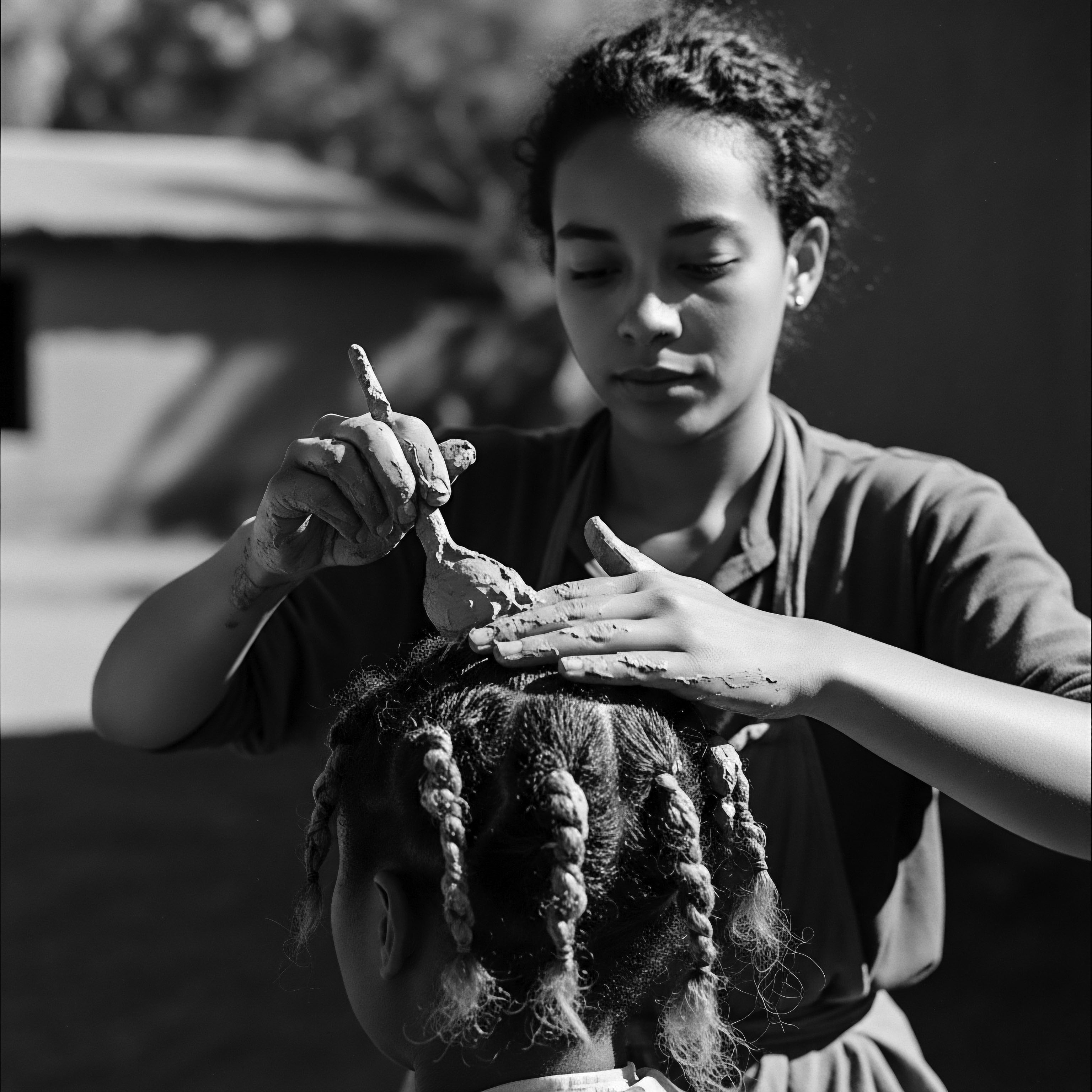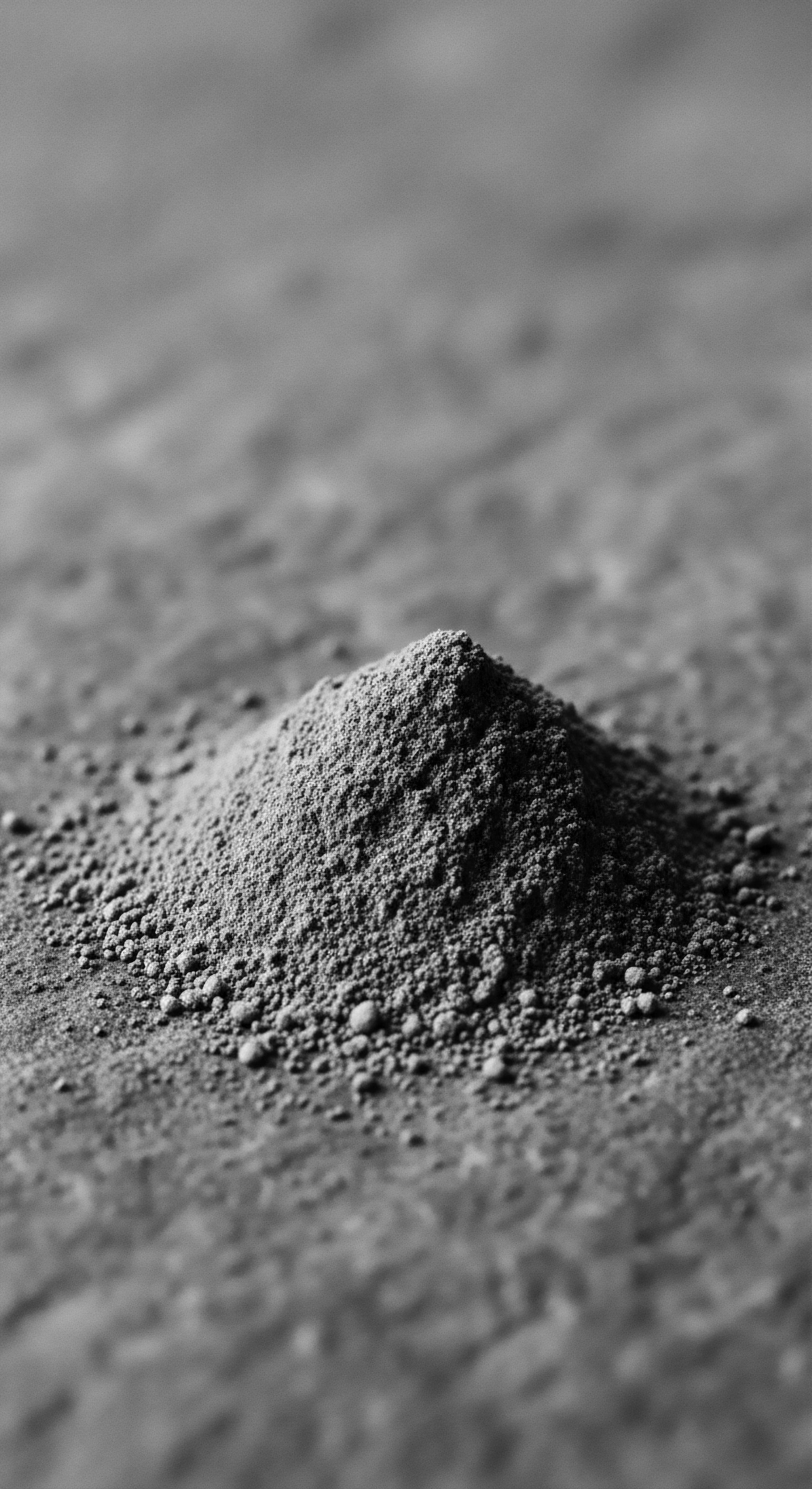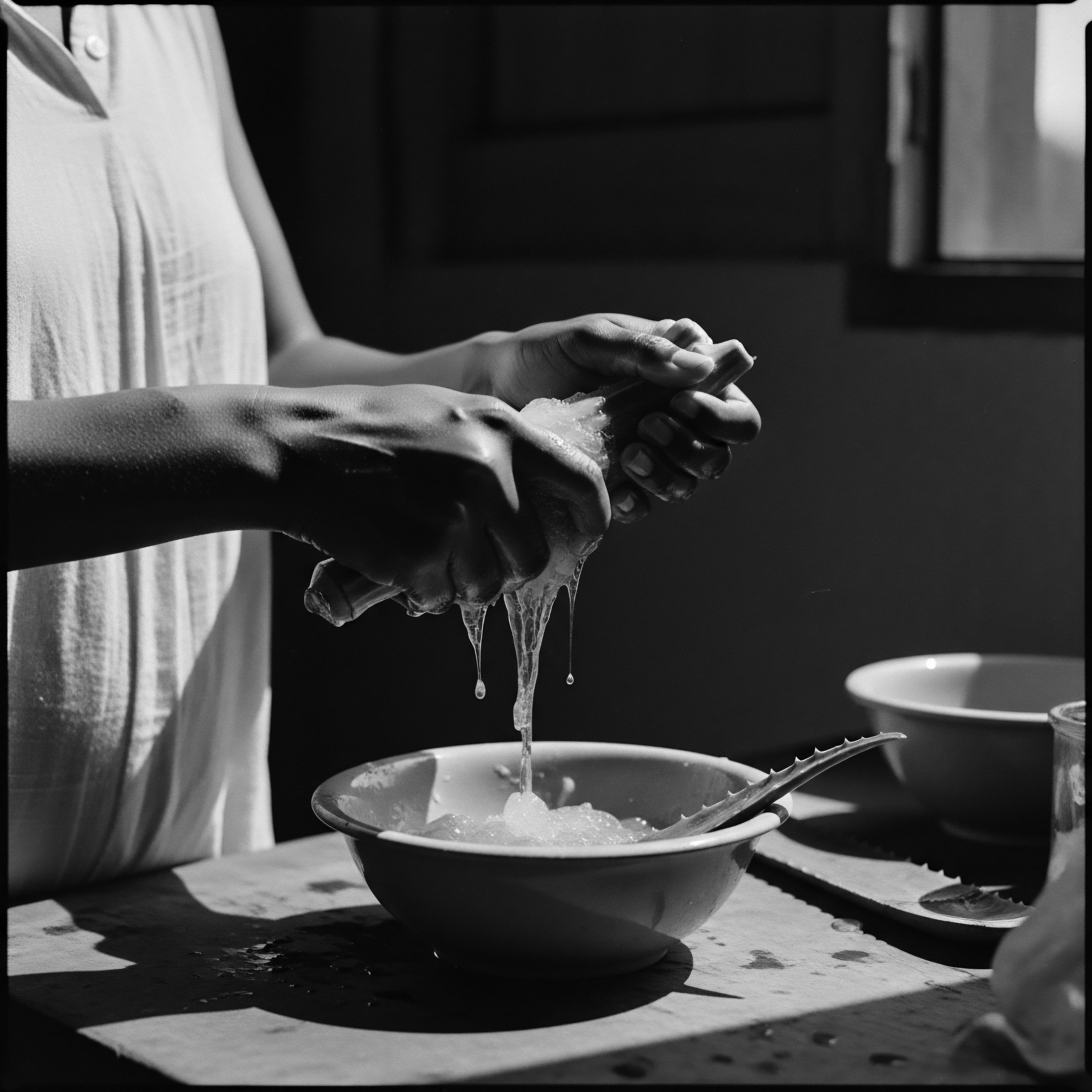
Fundamentals
The concept of Eugenol Hair Health, in its most elemental form, refers to the beneficial effects that eugenol, a natural compound, contributes to the vitality and well-being of the scalp and hair strands. This understanding draws from both ancient wisdom and contemporary scientific inquiry. Eugenol, primarily found in essential oils like that extracted from cloves ( Syzygium aromaticum) and cinnamon, carries a distinctive warm, spicy aroma. Its historical presence in traditional healing practices across diverse cultures speaks to an inherent recognition of its properties long before modern science could delineate them. Across generations, healers and caregivers, particularly within communities valuing natural remedies, observed tangible improvements in hair’s resilience and appearance when incorporating eugenol-rich botanicals. This observation, deeply rooted in ancestral practices, forms the foundational explanation for the term. The meaning of Eugenol Hair Health, therefore, is tied to its capacity to support the scalp’s delicate ecosystem and strengthen hair from root to tip. At its core, the designation of Eugenol Hair Health encompasses the idea that this plant-derived compound possesses qualities conducive to fostering robust hair growth and maintaining a harmonious scalp environment. It speaks to a holistic understanding of hair wellness, where the internal balance of the body finds expression in the external health of one’s crown. The traditional application of eugenol-containing ingredients, often in the form of infused oils or poultices, was not merely cosmetic; it was a deeply ingrained aspect of self-care and communal well-being. Eugenol exists as a pale yellow or colorless liquid compound, the prominent aromatic molecule responsible for the characteristic scent of cloves. It is a phenolic compound, a type of chemical structure often linked to antioxidant activities found abundantly in the natural world. While cloves stand as its most concentrated source, eugenol also appears in basil, cinnamon, and nutmeg, to name a few botanical kin. Its journey from plant to potion, particularly in traditional contexts, involved careful harvesting and preparation, processes refined over centuries by those who understood the plant’s offerings through intimate observation. The botanical lineage of cloves, Long before laboratories isolated compounds, ancestral communities recognized the inherent benefits residing within natural elements. For textured hair, which often demands specific and attentive care due to its unique structural properties, ingredients like cloves were treasured for their perceived capacity to soothe the scalp and promote healthy strands. Within African hair traditions, for example, the use of various plant-based remedies was central to hair care rituals, signifying not only hygiene but also social status, spiritual connection, and tribal affiliation. Ancient practices involved crafting tonics and infusions from botanicals to address scalp ailments and support hair vitality. While direct historical documentation detailing the precise use of eugenol by name in ancient African hair care traditions might be scarce in written records, the widespread and long-standing use of clove and cinnamon across many cultures, including those with significant African populations and trade routes, suggests its indirect application. In many instances, the effectiveness of these traditional preparations stemmed from the very compounds we identify today, eugenol among them. Eugenol Hair Health refers to the essential compound’s capacity to revitalize scalp and hair, bridging ancient practices with contemporary scientific insights into its beneficial properties.
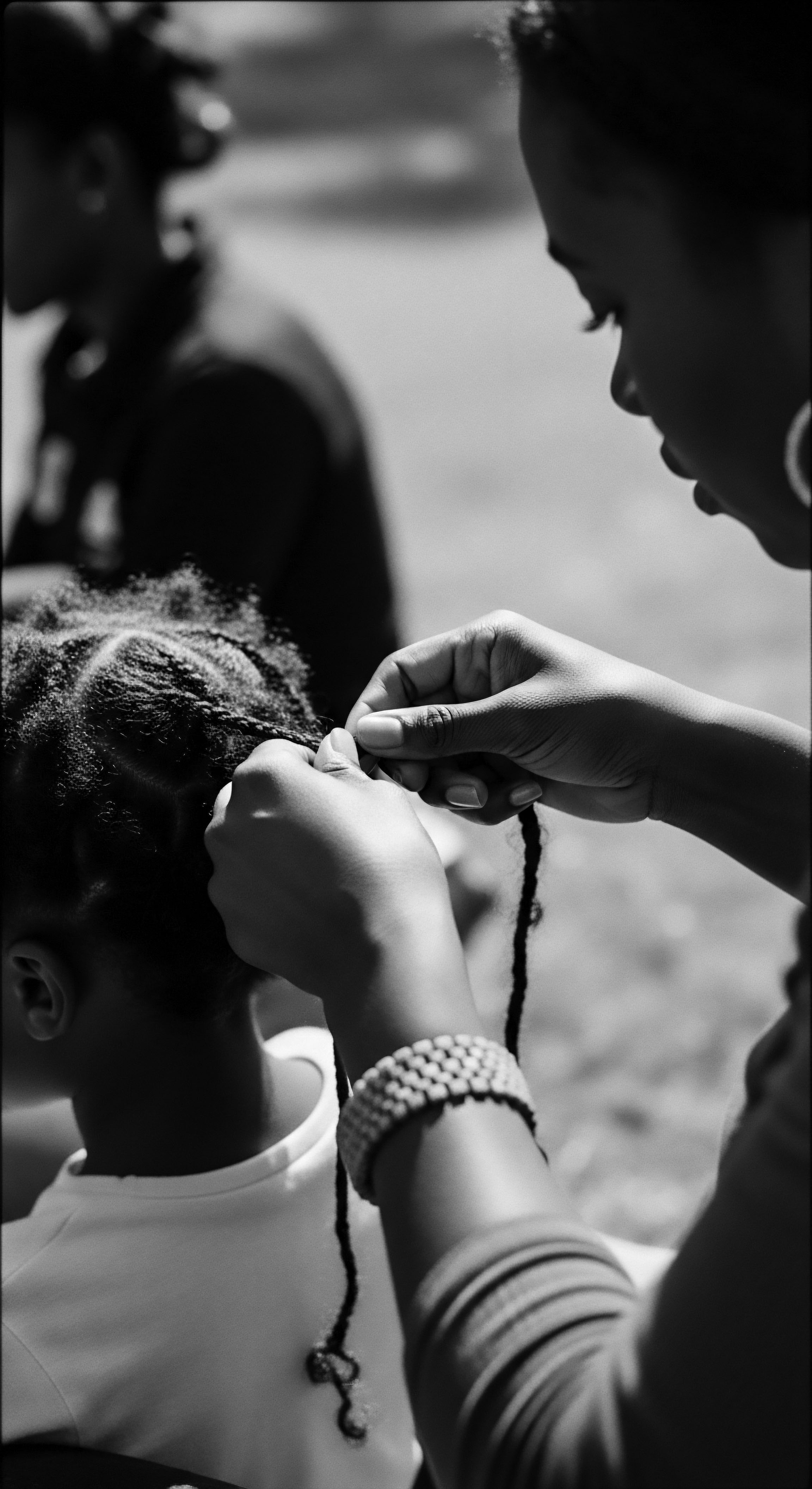
What Eugenol Is and Its Origins
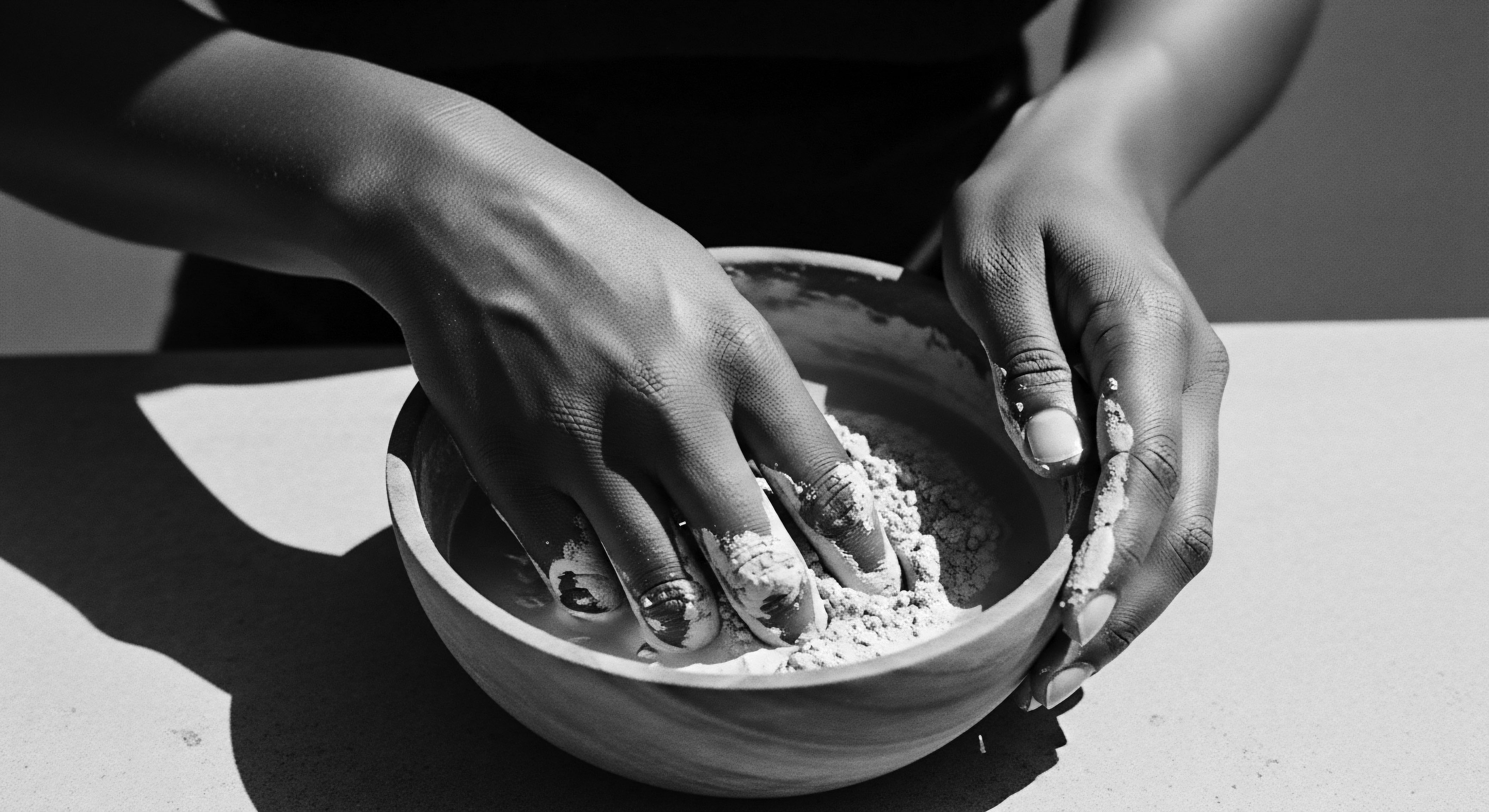
Ancestral Echoes: Early Applications

Intermediate
Transitioning into a more intricate understanding, the meaning of Eugenol Hair Health extends beyond simple recognition of its presence in ancient practices, delving into the specific biological mechanisms that validate ancestral wisdom. Eugenol’s inherent characteristics, such as its antioxidant, anti-inflammatory, and antimicrobial properties, provide a scientific framework for the observed benefits. These properties directly address common challenges faced by textured hair, which, due to its unique curl pattern, can be more susceptible to dryness, breakage, and scalp conditions that hinder growth.
The intricate coiled structure of textured hair often makes it challenging for natural oils produced by the scalp to travel down the entire hair shaft, contributing to dryness. This dryness, in turn, can predispose the scalp to irritation and various microbial imbalances. Eugenol’s role in mitigating these issues is where its true value for textured hair care begins to unfold, affirming practices that have nourished Black and mixed-race hair for centuries.
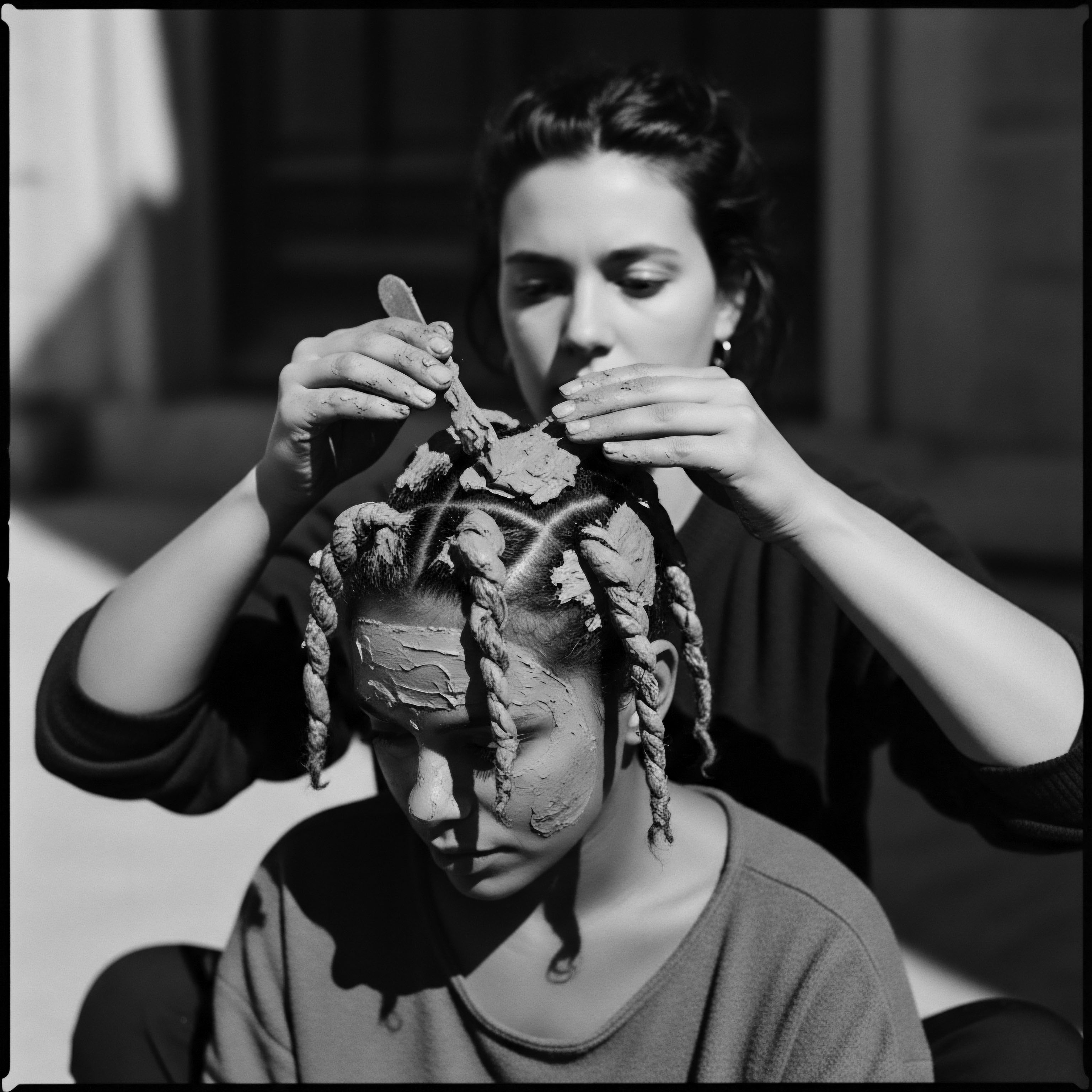
The Biological Mechanics of Eugenol
The scientific delineation of Eugenol Hair Health centers on how this compound interacts with the scalp’s physiological processes. Researchers have observed that eugenol can play a part in enhancing blood flow to the scalp, a foundational element for robust hair growth. Improved circulation ensures that hair follicles receive an adequate supply of oxygen and essential nutrients, which are indispensable for cellular activity and the development of strong hair strands.
Eugenol’s reputation as a powerful antioxidant is significant. It operates by neutralizing free radicals, unstable molecules that can inflict cellular damage, including harm to hair follicles. By diminishing oxidative stress, eugenol helps shield hair from environmental aggressors and the natural processes of aging, thereby contributing to the maintenance of hair strength and thickness. This protective action underscores why traditional formulations featuring eugenol-rich botanicals fostered hair longevity.
Additionally, eugenol exhibits considerable anti-inflammatory capabilities. Scalp inflammation, whether from environmental factors, product sensitivities, or underlying conditions, can disrupt the hair growth cycle and lead to thinning or hair loss. Eugenol’s capacity to quell inflammation helps establish a calmer, healthier scalp environment, which is paramount for supporting consistent hair growth and preserving hair texture.
Eugenol’s biological activities ❉ antioxidant defense, inflammation reduction, and improved scalp circulation ❉ form the scientific bedrock supporting its time-honored role in promoting robust hair health.
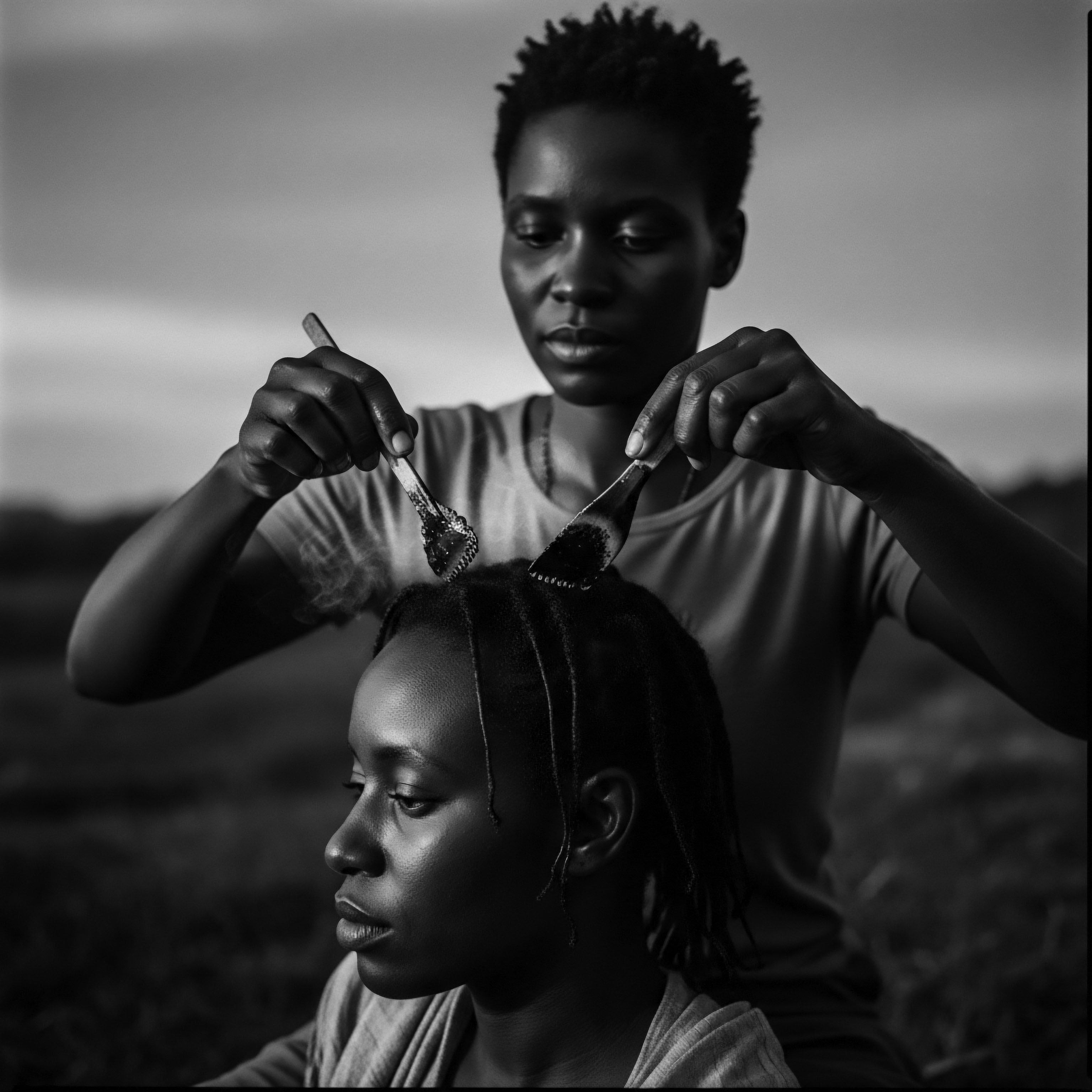
Eugenol in the Continuum of Ancestral Hair Care
The wisdom of ancestral hair practices, particularly within African and diasporic communities, instinctively sought out ingredients that addressed hair and scalp needs with reverence for natural balance. While the term “eugenol” itself might not have been part of ancient vocabularies, the plants containing it, such as cloves, certainly were. These botanicals were integrated into daily and ceremonial hair rituals, affirming their central role in cultural identity and well-being.
Consider the historical application of various plant materials across African communities for hair care. The women of Chad, for instance, utilize a blend known as Chébé powder, which includes a mixture of cloves along with other powerful ingredients like soubiane seeds, missic stone, and samour resin. This tradition, passed through generations, focuses on reducing hair shedding and breakage, thereby promoting length retention and overall hair health. The presence of cloves in such a time-honored remedy illustrates a deep, intuitive understanding of eugenol’s benefits long before its chemical isolation.
The significance of hair in African cultures transcends mere aesthetics; it serves as a powerful conduit of identity, lineage, and spiritual connection. Hairstyles and hair care rituals communicated social status, age, marital eligibility, and even tribal affiliation. The conscious selection of specific plant ingredients for these routines, including those rich in eugenol, was not accidental.
These choices were guided by generations of observation and experiential knowledge, forming a legacy of embodied practices that respected the unique needs of textured hair. This deep heritage perspective showcases how the meaning of Eugenol Hair Health is inextricably linked to the cultural fabric of diverse communities.
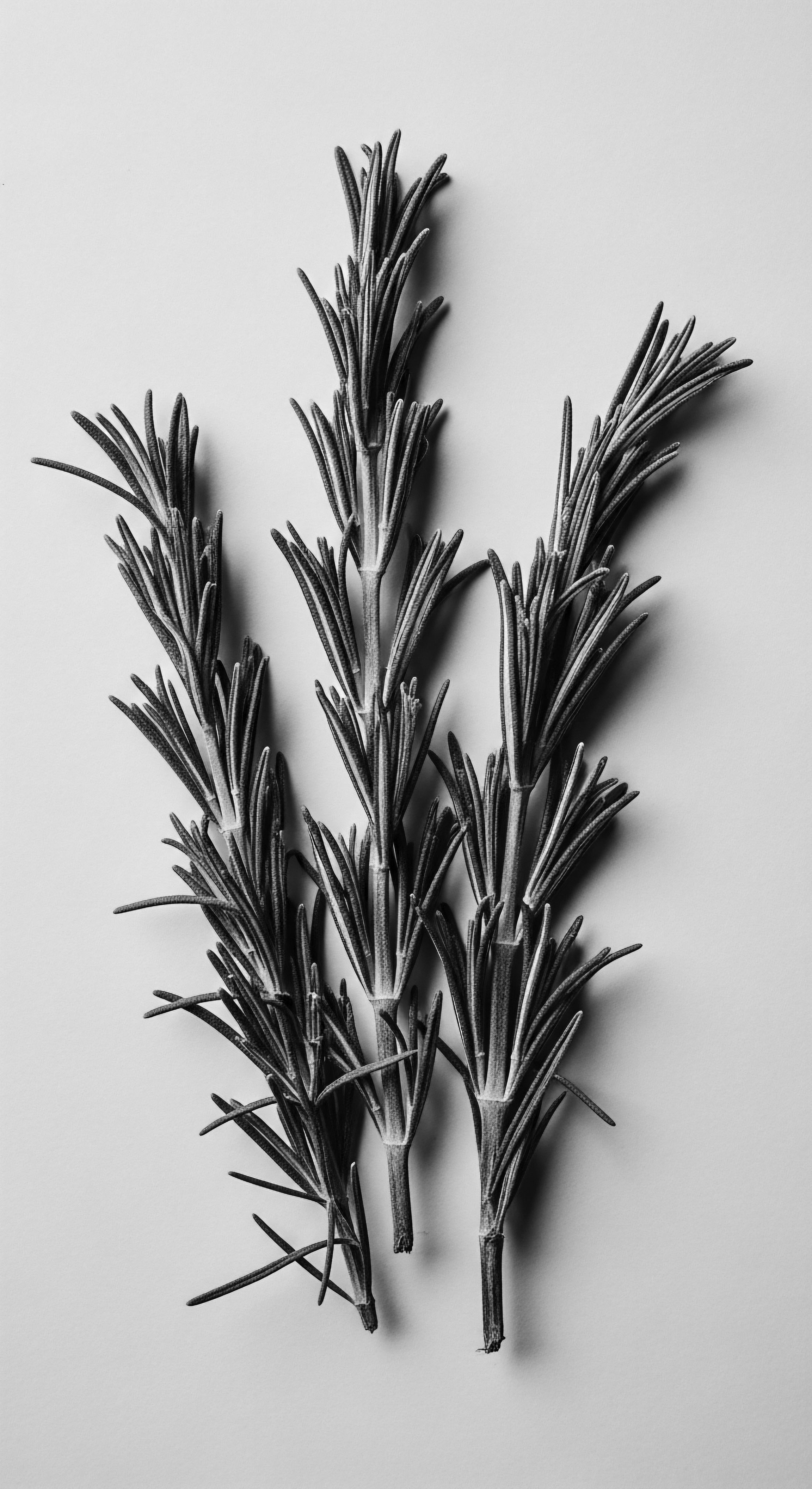
Academic
The academic definition of Eugenol Hair Health necessitates a rigorous examination, transcending anecdotal observation to encompass the intricate biochemical and physiological interactions underpinning its efficacy. At this elevated level of understanding, Eugenol Hair Health represents the multifaceted, scientifically validated influence of 4-allyl-2-methoxyphenol, or eugenol, on the pilosebaceous unit and its surrounding microenvironment, particularly within the context of textured hair biology and the historical realities of Black and mixed-race hair experiences. This interpretation considers eugenol as a potent bioactive compound whose impact is elucidated through advanced dermatological, pharmacological, and ethnobotanical research.
The complexity of textured hair, characterized by its elliptical follicle shape, uneven cuticle layers, and propensity for coiling and twisting, renders it intrinsically vulnerable to mechanical stress, environmental damage, and specific forms of alopecia. Therefore, a comprehensive understanding of Eugenol Hair Health requires an appreciation for how this compound precisely addresses these inherent vulnerabilities, offering mechanisms of action that validate and extend the profound wisdom embedded in ancestral hair care practices.
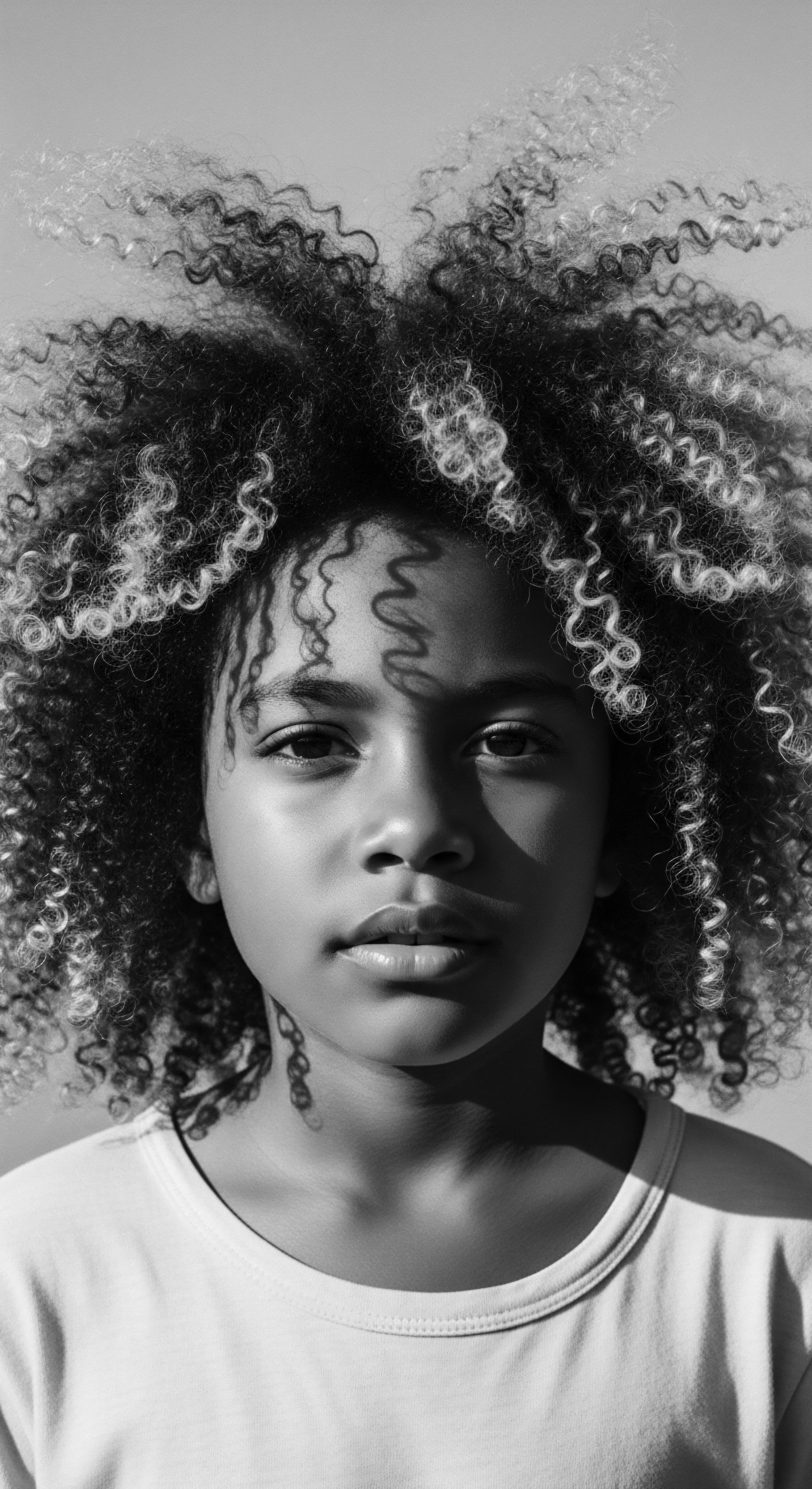
Pharmacological Mechanisms and Hair Follicle Dynamics
From an academic vantage point, eugenol’s contribution to hair health is predicated on a confluence of established pharmacological properties. Its prominent role as an antioxidant is well-documented, operating as a scavenger of reactive oxygen species (ROS). Oxidative stress, an imbalance between free radicals and the body’s antioxidant defenses, significantly contributes to hair follicle miniaturization, premature hair graying, and overall hair weakening by damaging cellular components and accelerating the aging process of hair follicles. By mitigating this stress, eugenol effectively shields the delicate dermal papilla cells and follicular keratinocytes, preserving their structural integrity and functional capacity essential for robust hair cycle progression.
The anti-inflammatory activity of eugenol is equally critical. Chronic micro-inflammation of the scalp, often subclinical, can severely impede the anagen (growth) phase of the hair cycle, leading to telogen effluvium and other forms of hair loss. Eugenol’s ability to modulate inflammatory pathways, possibly through the inhibition of pro-inflammatory mediators such as prostaglandins and leukotrienes, fosters a more quiescent and conducive environment for sustained hair growth. This reduction in scalp irritation directly translates to improved follicle vitality and diminished hair shedding.
Furthermore, research has explored eugenol’s anti-androgenic effects. A common cause of hair thinning, particularly androgenetic alopecia, involves the conversion of testosterone to dihydrotestosterone (DHT) by the enzyme 5-alpha-reductase. Elevated DHT levels can lead to follicular miniaturization.
Studies suggest that eugenol may inhibit the activity of this enzyme, thus lowering DHT levels and potentially mitigating hair loss associated with androgen sensitivity. While definitive large-scale human clinical trials are still emerging, the mechanistic plausibility of this action supports its potential as a complementary agent in hair loss prevention strategies.
Academic inquiry into Eugenol Hair Health reveals its complex interplay with hair follicle biology, emphasizing its role in mitigating oxidative stress, quelling inflammation, and potentially modulating hormonal pathways, thereby providing a scientific lens to view its historical efficacy.
Beyond these, eugenol demonstrates significant antimicrobial and antifungal properties. Scalp dysbiosis, characterized by an overgrowth of microorganisms like Malassezia furfur (a common contributor to dandruff and seborrheic dermatitis), can induce inflammation and compromise scalp barrier function. Eugenol’s capacity to inhibit the growth of such pathogens contributes to a cleaner, healthier scalp, reducing itchiness, flaking, and the risk of infection-related hair damage. This aspect particularly resonates with traditional practices that recognized the importance of a clean and balanced scalp for hair longevity.
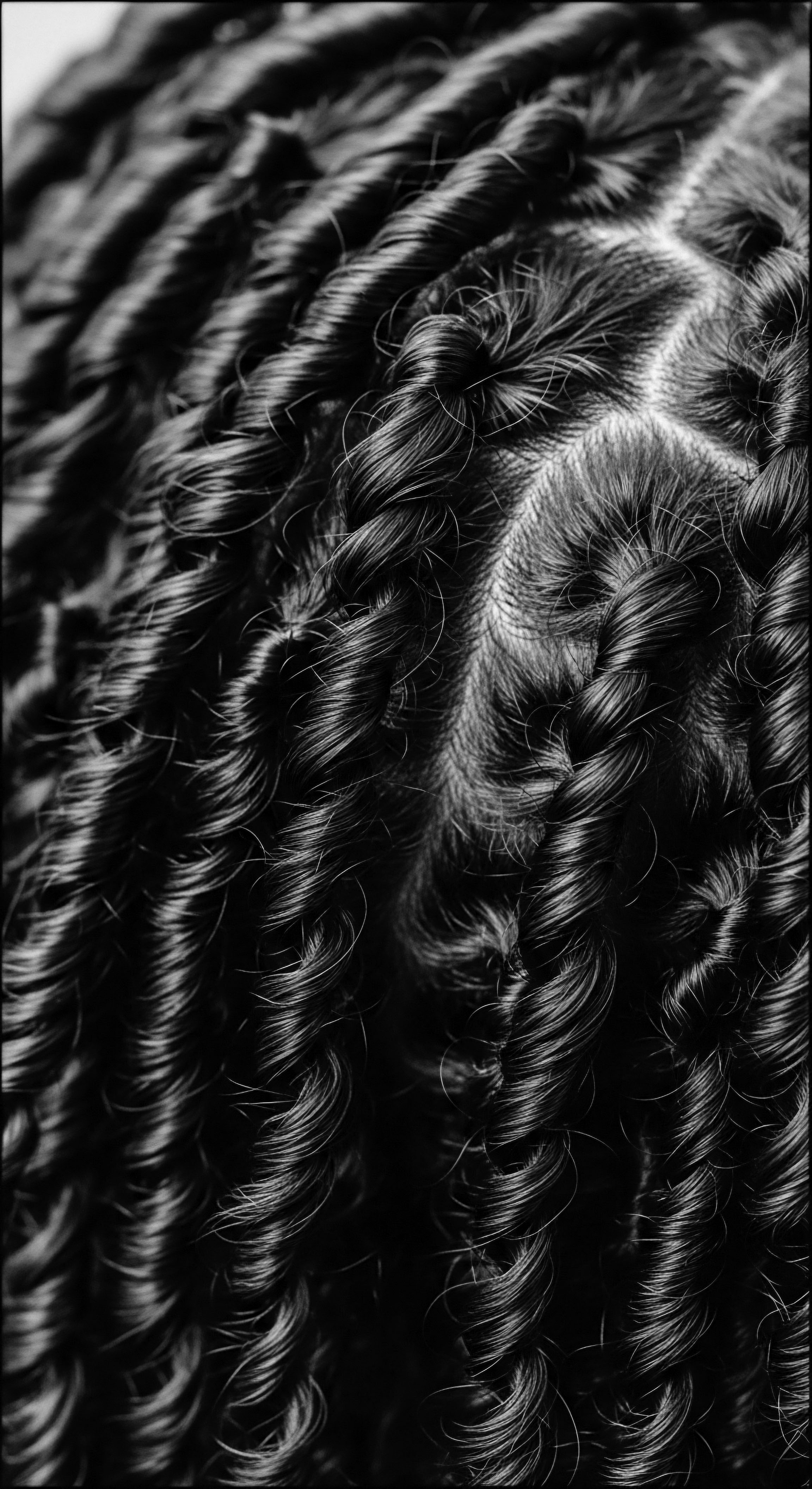
Ethnobotanical Convergence and Empirical Validation
The academic pursuit of Eugenol Hair Health invariably leads to the intersection of modern pharmacology and ethnobotany. The traditional uses of clove oil across diverse cultures, including those of African descent, represent a vast empirical dataset compiled over millennia. While not articulated in molecular terms, the consistent application of eugenol-rich botanical extracts for scalp maladies and hair vitality suggests an intuitive, observed efficacy that modern science now seeks to rigorously explain.
For instance, historical accounts and ongoing traditional practices in various African communities detail the use of indigenous plants for hair and scalp disorders. While specific studies on eugenol’s presence in every single traditional African hair remedy are limited, the widespread use of plants like cloves, which are rich in eugenol, within a broader context of herbal hair care across the continent, suggests its inclusion in the ancestral pharmacopeia. In Nigeria, for example, a range of herbs and oils are traditionally applied topically for hair and scalp disorders, signifying a deep-seated knowledge of botanical benefits. The efficacy observed in these traditional applications, often passed down through oral traditions and communal practice, provides valuable starting points for contemporary scientific investigation into compounds like eugenol.
A study published in the Journal of HerbMed Pharmacology (Shahtalebi et al. 2016) highlighted that eugenol, comprising approximately 70% of clove essential oil, demonstrates both androgenic and antibacterial activities, and stimulates hair roots. This investigation into eugenol’s potential as a component in hair loss formulations and its effects on hair conditioning represents a direct validation of the historical applications of cloves in traditional medicine.
The implication is clear: ancestral methods, though not always scientifically articulated in their time, often harnessed the very compounds modern science is now isolating and analyzing for their specific therapeutic effects. This bridge between historical application and scientific elucidation reinforces the deep-seated, generational knowledge systems of textured hair care.
The significance of Eugenol Hair Health, from an academic standpoint, therefore lies in its capacity to serve as a bridge between ancient ancestral practices and cutting-edge dermatological science. It represents a paradigm where empirical wisdom, honed through centuries of intimate human interaction with the natural world, is now being systematically decoded and validated by modern research methodologies. This validates the sophisticated understanding of plant properties that Black and mixed-race communities held, not as mere folklore, but as foundational knowledge for hair care.
- Blood Microcirculation Enhancement ❉ Eugenol’s vasodilatory properties, through their action on smooth muscle cells surrounding capillaries, can improve blood flow to the follicular unit. Enhanced microcirculation delivers oxygen, nutrients, and growth factors more efficiently to the hair matrix, thereby supporting metabolic activity and accelerating the anagen phase.
- Collagenase and Elastase Inhibition ❉ Beyond antioxidant and anti-inflammatory roles, emerging research may explore eugenol’s potential to inhibit enzymes such as collagenase and elastase, which degrade extracellular matrix components essential for maintaining the structural integrity of the hair follicle and surrounding connective tissue. Protecting this intricate architecture would contribute to stronger anchorage of hair strands.
- Hair Shaft Fortification ❉ Eugenol’s potential to interact with the protein structure of hair, possibly by forming weak bonds or enhancing cuticle integrity, could contribute to increased hair elasticity and reduced susceptibility to breakage. This is particularly relevant for textured hair, where mechanical fragility is a common concern.
The ongoing scientific scrutiny of eugenol, while revealing its biochemical intricacies, concurrently illuminates the profound intuition of those who, through generations of direct engagement with the earth’s pharmacopeia, unlocked its beneficial qualities for hair. The academic investigation of Eugenol Hair Health is not simply about isolating a compound; it is about respecting a legacy of care, understanding, and adaptation that has shaped the hair experiences of diverse populations for centuries.
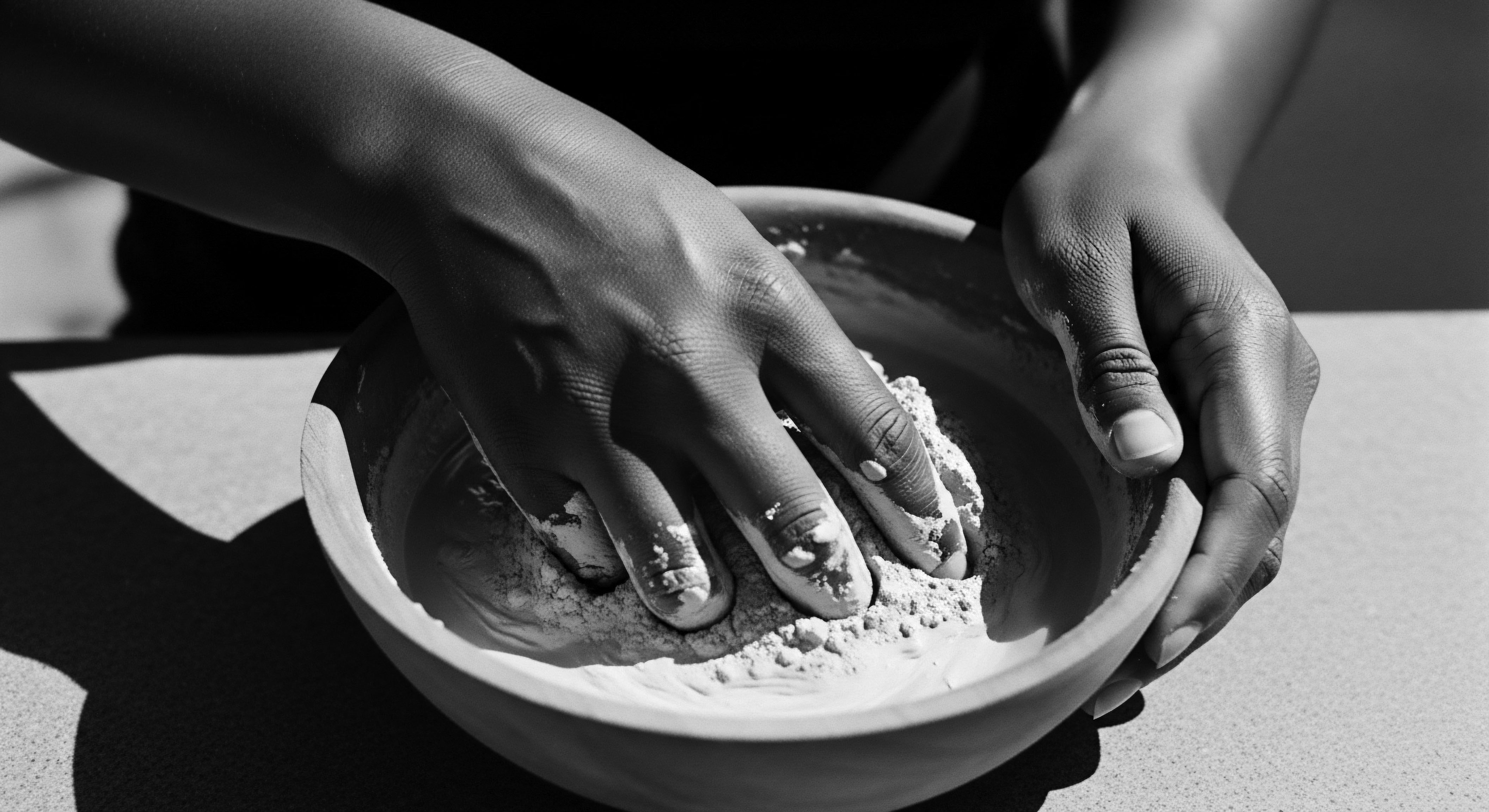
Reflection on the Heritage of Eugenol Hair Health
The journey through the meaning of Eugenol Hair Health is, in its very essence, a meditation on the enduring legacy of textured hair and its profound connection to ancestral wisdom. We have traced this understanding from elemental whispers, recognizing eugenol’s deep roots in the earth’s botanicals, to the precise scientific elucidations that affirm the intuitive brilliance of those who first harnessed its power. This exploration unfolds as a living, breathing archive of care, community, and the persistent voicing of identity through the crown.
The presence of eugenol in the tender threads of traditional hair care practices, particularly within Black and mixed-race communities, signifies more than just a historical anecdote. It speaks to an unbroken lineage of self-preservation and creative adaptation. From the careful infusions crafted in West African villages to the resourceful remedies devised by enslaved Africans in the diaspora, hair care was never a superficial act.
It was a ritual imbued with meaning, a quiet act of resistance, and a vibrant declaration of being. The meticulous attention paid to hair, often with ingredients like cloves, was a testament to resilience, beauty, and continuity against forces that sought to diminish identity.
The enduring legacy of Eugenol Hair Health lies in its historical presence within textured hair traditions, serving as a poignant reminder that ancestral practices hold profound wisdom for contemporary well-being and identity.
Each strand of textured hair carries the echoes of countless hands that have tended to it ❉ hands that applied protective butters, hands that meticulously braided, hands that instilled spiritual significance into every coil and kink. Eugenol, through its botanical vessels, became an unwitting ally in this heritage of care. It was a silent partner in the preservation of scalp health, the nurturing of length, and the protection of hair that faced both environmental rigors and societal pressures. The understanding of its benefits, passed down through oral traditions and embodied practices, sustained hair as a living document of lineage, a vibrant symbol of resilience.
The ongoing exploration of Eugenol Hair Health, linking its elemental biology to ancient practices, and then to its role in voicing identity and shaping futures, paints a complete picture. It invites us to appreciate how a single compound can carry so much history, so much cultural weight, and so much promise. Our appreciation for this intricate dance between science and tradition only deepens our respect for the textured hair journeys that continue to unfold across the globe, each one a testament to the enduring spirit of a crown unbound.

References
- Clinikally. (2023). The Power of Eugenol for Stronger Hair: A Review of Studies. Clinikally.
- Dr.UGro Gashee. (2018). Examination of Studies on Eugenol For Hair Strength. Dr.UGro Gashee.
- Good Health by Hims. (2025). Cloves for Hair: Benefits, Uses, and Side Effects. Good Health by Hims.
- MAFU. (2024). Clove Oil Hair Benefits: The Top 5. MAFU.
- Shahtalebi, M. A. Sadat-Hosseini, A. & Safaeian, L. (2016). Preparation and evaluation of clove oil in emu oil self-emulsion for hair conditioning and hair loss prevention. Journal of HerbMed Pharmacology, 5(2), 72-77.
- Afriklens. (2025). Hair Care Practices from the Diaspora: A Look at Africa, America, and Europe. Afriklens.
- Avimee Herbal. (2024). Cloves for Hair Growth: Natural Boost or Spice Rack Myth? Avimee Herbal.
- Aromachology Oils. (2024). Eugenol Oil: Benefits, Uses and Side Effect. Aromachology Oils.
- AYANAE. (2024). Powerful African and Asian Herbs for Hair Growth: Nature’s Remedies for Hair Health. AYANAE.
- Orlando Pita Play. (2023). Haircare Rituals Around the World: Exploring Global Traditions. Orlando Pita Play.
- La Vie des idées. (2019). The Afro: More Than a Hairstyle. Books & Ideas.
- Afriklens. (2024). African Hairstyles: Cultural Significance and Legacy. Afriklens.
- colleen. (2020). The History of Textured Hair. colleen.
- ScienceOpen. (2021). Pharmacological Properties and Health Benefits of Eugenol: A Comprehensive Review. ScienceOpen.
- Refinery29. (2021). The Evolution Of The Natural Hair Movement. Refinery29.
- The Zoe Report. (2022). The Unsung Stories Of African Ingredients In Some Of Your Favorite Beauty Products. The Zoe Report.
- Okoro, N. M. & Okafor, N. J. (2022). A review of indigenous therapies for hair and scalp disorders in Nigeria. International Journal of Dermatology, 61(10), 1210-1216.
- MDPI. (2023). Cosmetopoeia of African Plants in Hair Treatment and Care: Topical Nutrition and the Antidiabetic Connection? MDPI.
- Black Women Radicals. (2020). How Naturals In And Outside The U.S. Maintain What’s On And In Their Crown During A Pandemic. Black Women Radicals.
- Bebrų Kosmetika. (2024). The Power of Hair in African Folklore: Rituals and Traditions. Bebrų Kosmetika.
- Verywell Health. (2024). Cloves for Hair Growth: Alternative Remedy or Just a Spice? Verywell Health.



